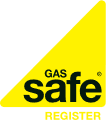Over 80% of UK adults at risk of missing ‘hangover like’ carbon monoxide poisoning symptoms
- Gas Safe Register launches Better Gas Safe Than Sorry campaign, urging the public to get clued up on the signs of carbon monoxide poisoning
- Fewer than 1 in 5 (18%)* are likely to consider carbon monoxide poisoning as a possible cause of headaches and nausea
- Around 5.5 million homes in the UK have unsafe gas appliances**, according to latest UK inspection figures
Over 80% of UK adults could be at risk of mistaking carbon monoxide poisoning symptoms for a different illness such as a cold, flu or hangover, according to new research published today.
The findings are released as part of new national campaign from the Gas Safe Register - Better Gas Safe Than Sorry - to help improve public awareness of carbon monoxide poisoning. The data reveals that more than three quarters (82%) of people are unlikely to consider CO poisoning as the possible cause of a headache and nausea. This is despite these symptoms being two of the most common signs of exposure to the poisonous gas.
The research, which involved 3,000 UK adults, suggests that most people don’t realise that the effects of CO exposure may not be severe. Only one in five (20%) respondents said they’d be aware of a carbon monoxide leak in their home if they felt unwell, as opposed to seriously unwell.
These findings are particularly concerning as latest figures show that 5.5 million homes in the UK are known to have unsafe gas appliances, such as gas boilers, cookers or gas fires which can lead to carbon monoxide leaking. Even more worryingly, only 20% of those surveyed said they always stop using a faulty gas appliance until it is fixed and just 42% get their gas appliances serviced every year by a Gas Safe registered engineer.
The Better Gas Safe Than Sorry launch event, which is taking place in Birmingham’s Bullring today, will feature an emergency butty van that will share potentially life-saving information. One of the UK’s favourite*** breakfast hangover foods - the bacon butty (and non-meat alternatives) will be shared with passers-by as a way of highlighting the similarity between hangover symptoms and the symptoms of carbon monoxide poisoning – a parallel recognised by only 40% of UK adults.
Jonathan Samuel, Chief Executive, Gas Safe Register said:
“It is really important to be better gas safe than sorry. Staying safe includes being aware of the symptoms of carbon monoxide poisoning. If people are suffering from ‘hangover-like’ symptoms, such as headaches or nausea but haven’t been drinking - which is even more likely in January - it is important to consider carbon monoxide poisoning alongside other possible causes. We would also like to urge everyone to help protect themselves and their loved ones by getting their gas appliances safety checked every year by a Gas Safe registered engineer”.
Paul Hull, Gas Safe registered engineer who is supporting the campaign, said:
“Carbon monoxide poisoning is extremely serious, but preventable. To avoid being exposed to carbon monoxide in the first place, it is vital people get their gas appliances checked every year by a Gas Safe registered engineer. Always ask and check your engineer’s ID card and make sure that it is in date. If you have any doubts check the Gas Safe Register website to ensure the engineer is registered.”
Gas Safe Register is the official list of gas businesses who are registered to work safely and legally on boilers, cookers, fires and all other gas appliances. By law all gas engineers must be on the Gas Safe Register.
For more information on carbon monoxide poisoning and the symptoms, visit our CO page.
*Research carried out by Censuswide on behalf of the Gas Safe Register with 3,000 respondents between 13.12.19 and 18.12.19.
** Findings based on 19,452 UK homes inspected between April 2018 and March 2019. One in five were found to have unsafe gas appliances, such as cookers, boilers and fires. There are 27.8 million households in the UK, according to ONS figures.
*** 58% of those surveyed said they would be very likely or likely to want a bacon sandwich when hungover. This was higher than a range of other options, including a traditional English breakfast, egg sandwich, sausage sandwich, fruit, cereal and porridge.

